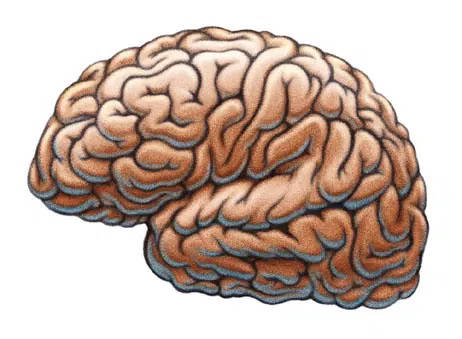A Mount Allison University professor plans to conduct a study into what was believed to be a mystery neurological disease.
Assistant Professor of Math and Computer Science Matthew Betti says he watched with keen interest while the government was investigating.
Now he plans to use his own expertise, “I am a mathematical modeler. I build models usually relating to biological problems. So a lot of my work is in ecology on the disease, how diseases spread in honeybee colonies. But then as we fell into years and years of COVID some of my older work came back and I started working with the federal government building models to predict the disease transmission in humans. We started to hear news stories about how there was this anomaly in New Brunswick with this series of neurological symptoms that could not be explained. I was watching with keen interest on how that went. I had reached out to the New Brunswick government to ask if they needed help or if they wanted to have some sort of data sharing agreement. We could use some of these techniques we’ve been using for COVID to try and pinpoint a possible causes or triggers. And then I didn’t I didn’t hear much back from them.”
He says the government started out with reports, but they didn’t appear to be crossing all of the t’s and dotting the i’s in what he would expect from a scientific study into the possible causes, triggers or correlations when it came to unexplained symptoms.
“I thought, maybe it’s best to remove politics from the whole process and come at it just from a strictly scientific point of view from you know, using scientific curiosity as a motivator to try and get some real answers and come up with a robust study that is just looking for, for any possibilities, not necessarily with any agendas in mind,” Betti says.
Betti wants to speak to New Brunswickers who have lived in the province for an extended length of time, “Families who have been affected but not limited to just people who were in that original cluster. We’re not even really limiting ourselves to people who have neurological symptoms in order to participate in the survey.”
He feels one of the key factors is to establish a control group, involving members of the general public chosen at random.
“It’s looking at people who are affected and people who are not affected and trying to figure out the differences in their behaviours, their lifestyles, you know, their histories. Once you can, if you can pinpoint differences, you can be much more confident in any possible correlations or triggers that you may find in the data. The only criteria that needs to be satisfied is we’re especially looking for people who exhibit one of the symptoms that were initially part of that that government study or people who have even known neurological conditions. We want to hear from everyone. This definitely looks like and seems to be a community problem in New Brunswick,” Betti adds.
His hope is to collect the data in six to eight months and put a report together from there.




